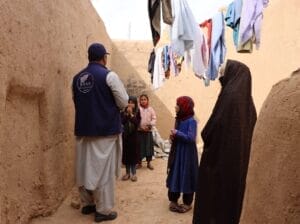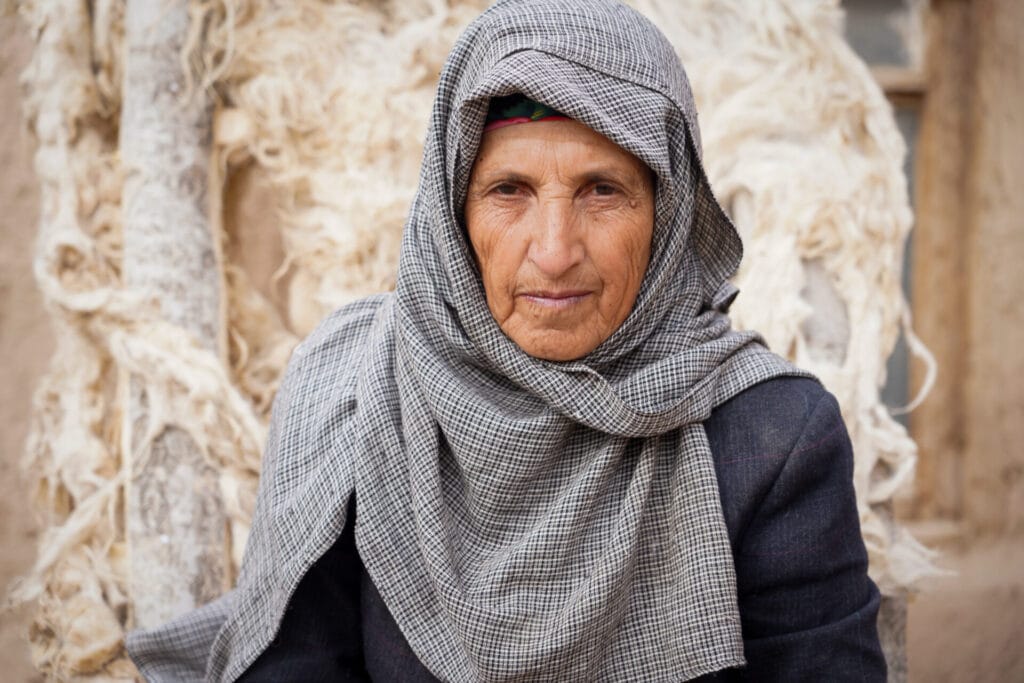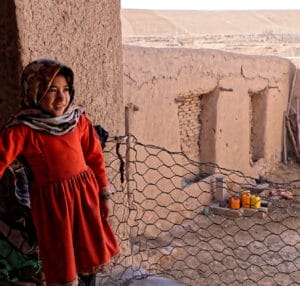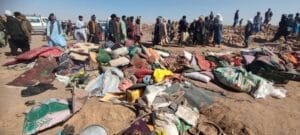
WeWorld was present in Afghanistan from 2002 until 2017 to support the most vulnerable groups with projects aimed at strengthening civil society and human rights. After the events of August 2021 that saw the return of the Taliban to power, we resumed our activities to ensure support for rural communities and in particular for women heads of households and their sons and daughters at such a sensitive time, both in terms of people's rights and their access to basic needs.
The context
Over 40 years of protracted crisis and war, deterioration of the economy and disintegration of the rule of law have hit the Afghan population hard.
Today, millions of people in Afghanistan are affected by severe food insecurity, malnutrition, displacement and protection risks. At the same time, the country is also experiencing a severe economic recession - which has led to the loss of livelihoods for millions of Afghans - and is living in a political environment that precludes access to humanitarian aid - whose funding continues to be cut. In addition, a prolonged drought, amplified by climate change and combined with decades of mismanagement, has caused a widespread water crisis that has affected all 34 provinces and led to the loss of crops, livestock and facilitated outbreaks of infections and epidemics.
Putting further pressure on an already dire situation, the last quarter of 2023 saw the return of almost half a million Afghans from Pakistan and Iran, following a new policy of deporting undocumented foreigners. This crisis has strained border points and host communities, increasing the humanitarian needs of returnees and the wider population.
Paying the heaviest price are women, girls and children, who are denied their fundamental rights by the de facto authorities, strictly applying Sharia law, discriminating against them legally and socially, excluding them from higher education and often forcing them to leave their jobs. In particular, women head their own families and are forced to take care of their sons and daughters alone without having the right to receive an income or to leave home independently. These conditions put their access to food and that of the children who depend on them at risk. More than two million women in the country are widows as a result of the war. Many of them live in extreme poverty, without an education, forced into debt and, since the Taliban banned women from working or even leaving home without a male guardian, risking their lives every day.
Our response
We operate in Afghanistan with two offices, a coordination office in Kabul and a field office in Herat, intervening in food access, livelihoods provision and disaster risk reduction, as well as being active in the response to the catastrophic earthquakes of October 2023 in Herat province, north-east of the country.
Access to food and livelihoods
Our intervention supports single female-headed households and their children in the rural districts of Kushk Robat-e-Sangi in Herat Province, where more than 10,000 women-headed households and over 50,000 children remain in need of humanitarian assistance. In partnership with our long-standing local partner, the Rural Rehabilitation Association for Afghanistan (RRAA), with funding from Child Alliance, we have been implementing cash assistance programs since 2021. In the first phase (2021–2022), 180 widow-headed households and approximately 1,000 children received monthly cash assistance to the value of USD 80 per household per month to access food and basic necessities. In the second phase (2022–2023), 240 female-headed households (1,569 individuals) were supported under a new round targeting highly food-insecure families, titled Cash for Food programme to fight children malnutrition in Afghanistan. The most recent cycle (2023–2024) reached an additional 130 vulnerable widow-headed households (678 individuals) facing compounding crises. In response to the 2023 earthquake, we further extended our support through an emergency intervention providing food security and winterization assistance to 310 highly vulnerable households (1899 individuals). Across all phases, 65 communities with a total of 860 female-headed households, approximately 5,146 individuals, have been reached with both cash and in-kind assistance, improving food security and contributing to the protection and well-being of some of the most at-risk populations in the region.
We are currently implementing a new program funded by Italian Agency for Development Cooperation (AICS) that has provided access to food to 1,100 female-headed households (7,496 individuals) and 404 women (2,828 individuals) have receives livelihood support in addition to cash for food through the distribution of 2 heads of goats and technical training for their rearing. Finally, 50 women heads of households will be given the opportunity to have access to income-generating activities through counseling.

Disaster Risk Reduction
To improve awareness of the risks of natural disasters and climate change, we are carrying out awareness-raising campaigns for the population in 40 communities, reaching more than 15,000 individuals. In addition, through Cash for Work, we have rehabilitated local assets to mitigate the impact of disasters, such as cleaning canals, repairing small irrigation infrastructures, building retaining walls along slopes, and implementing small works to preserve soil from erosion and improve rainwater infiltration. A total of 432 skilled and unskilled workers were engaged and supported through this Cash for Work initiative. Finally, 500 farmers identified among the most vulnerable households have received support for agricultural production in drought conditions through technical training and the distribution of wheat seeds of resistant varieties and fertilizers.
Response to the 2023 earthquakes
In response to the devastating earthquakes that impacted Herat province in October 2023, with the financial support of ChildFund Australia, ChildFund Korea, ChildFund Deutschland, Barnfonden, and the Taiwan Fund for Children and Families, we provided emergency cash assistance to 310 families. This support enabled households to meet essential needs, including food and critical non-food items, to withstand the harsh winter conditions. Amid ongoing emergencies and persistent challenges faced by the people of Afghanistan, we remain committed to supporting the most vulnerable populations through sustained and targeted interventions.
WeWorld's intervention in Afghanistan is possible thanks to the support of ChildFund Australia, ChildFund Korea, Italian Agency for Development Cooperation (AICS) and many companies and people who are supporting us.




